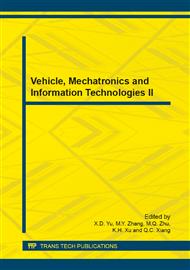p.2846
p.2850
p.2854
p.2858
p.2862
p.2869
p.2873
p.2879
p.2884
Dynamic Spectrum Sensing Game in De-Centralized Licensed-Band Cognitive Networks
Abstract:
In the cognitive network, the cognitive users are allowed to utilize the licensed bands without interference to primary user. The spectrum sensing performance of cognitive user is important for protection to primary user. In this paper, we investigate the spectrum sensing problem and joint game theory to study the competition. The spectrum sensing game is applicable to more than one cognitive user who competes for the licensed channel as a game. In this model, the cognitive users use the energy detection to sense and make decisions independently. The probability of false alarm and detection are considered, the spectrum sensing time and the detection threshold is optimized to maximize the throughput of the cognitive user. Otherwise, to provide sufficient protection to the primary user and reduce the interference which is caused by the competition between cognitive users, a punishment mechanism is proposed. The simulation results show that significant improvement of cognitive user can be achieved through optimizing the detection elements and adjusting the strategies in the spectrum sensing game.
Info:
Periodical:
Pages:
2862-2868
Citation:
Online since:
March 2014
Authors:
Price:
Сopyright:
© 2014 Trans Tech Publications Ltd. All Rights Reserved
Share:
Citation:


